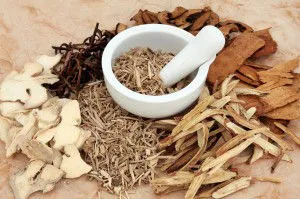Astragalus, also known as ogi, milk-vetch root and Huang Qi, has been used in traditional Chinese medicine for thousands of years. Only in recent years has Western medicine been catching on to the many health-promoting characteristics of this root, including its significant ability to support the immune system.
Scientifically known as Astragalus membranaceus, the astragalus plant is a member of the pea family. In China, the root is used as a warming tonic, and is thought to build up protective qi, therefore warding away infections.
Traditional Chinese medicine employs astragalus, alone or in combination with other herbs, for improving energy, stimulating the immune system, treating liver, heart and kidney conditions, battling cancers and viral infections, and promoting longevity.
This root also contains the minerals copper, iron, manganese, potassium and zinc, possesses antioxidant, anti-inflammatory, antibacterial and antiviral properties, and is also considered an adaptogen (helps the body to balance itself) and a diuretic. Other traditional uses for astragalus include the treatments of hypertension, fatigue, asthma and anemia.
A clinical review of three Chinese herbs, one of which was astragalus, was published in 1998 in the journal Alternative Medicine Review. Regarding astragalus, the author of this review, Stephen Sinclair, ND, LAc, writes, “currently, much of the pharmacological research is focused on its immune-stimulating polysaccharides and other active ingredients from the plant, useful in treating immune deficiency conditions.”
Sinclair goes on to mention an in vitro study in which the effects of astragalus were tested against renal carcinoma cells. Results of the experiment showed that the astragalus strengthened a certain class of immune cells (lymphokine-activated killer cells, also known as LAK) ten-fold against the invading cancer cells.
Dr. Oz reports on other recent research that has found that compounds in astragalus can activate an enzyme known as telomerase (hTERT), which works to lengthen telomeres. Telomeres are parts of DNA which work to protect and in essence expand the DNA’s longevity. Telomeres generally shorten as we age, and astragalus compounds were found to lengthen them in lab studies.
While more research needs to be done on astragalus, the ancients have been harnessing its power for generations. It has great promise in immune-system stimulation, and may help the body to fight off colds, flus and other infections. Some research is finding it may even have promise against retroviral conditions such as HIV and AIDS. Some herbalists also recommend it for seasonal allergies.
Astragalus root is sweet-tasting, and can be found in dried root slices, powders and teas, as well as in tinctures and capsules. Always make sure that you choose organic, minimally-processed astragalus from a source that you trust, to avoid chemical processing agents. In traditional Chinese medicine, the roots are sometimes roasted in 
Note: Astragalus may interact with certain medications, so make sure you talk to a naturopathic practitioner before starting to use it. It may also have negative effects for those with bleeding disorders, and should not be used while pregnant or breastfeeding. A natural health professional can help you determine whether this potent root is right for you, as well as the amount to use for your individual needs.
-The Alternative Daily
Sources:
http://www.doctoroz.com/videos/astragalus-root-right-you
http://www.clarksnutrition.com/ns/DisplayMonograph.asp?storeID=2691b1fe187d41acb869a85ca5957a0a&DocID=bottomline-astragalus
http://examine.com/supplements/Astragalus+membranaceus
http://www.methowvalleyherbs.com/2012/02/astragalus-supreme-protector.html
http://www.livestrong.com/article/395135-longevity-with-astragalus
http://www.ncbi.nlm.nih.gov/pubmed/18720826
http://www.cancer.org/treatment/treatmentsandsideeffects/complementaryandalternativemedicine/herbsvitaminsandminerals/astragalus
http://www.altmedrev.com/publications/3/5/338.pdf
